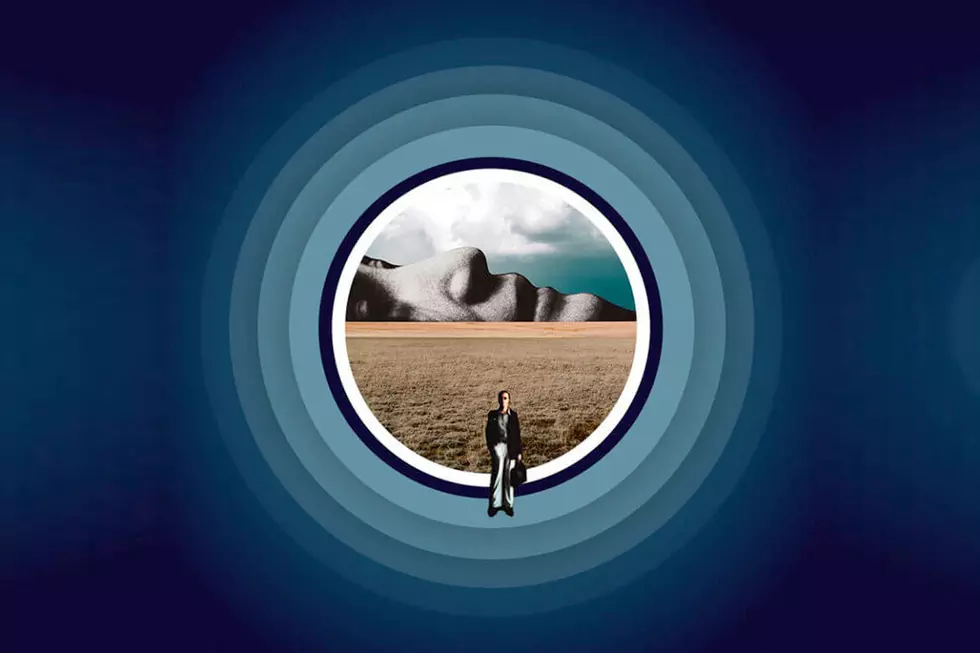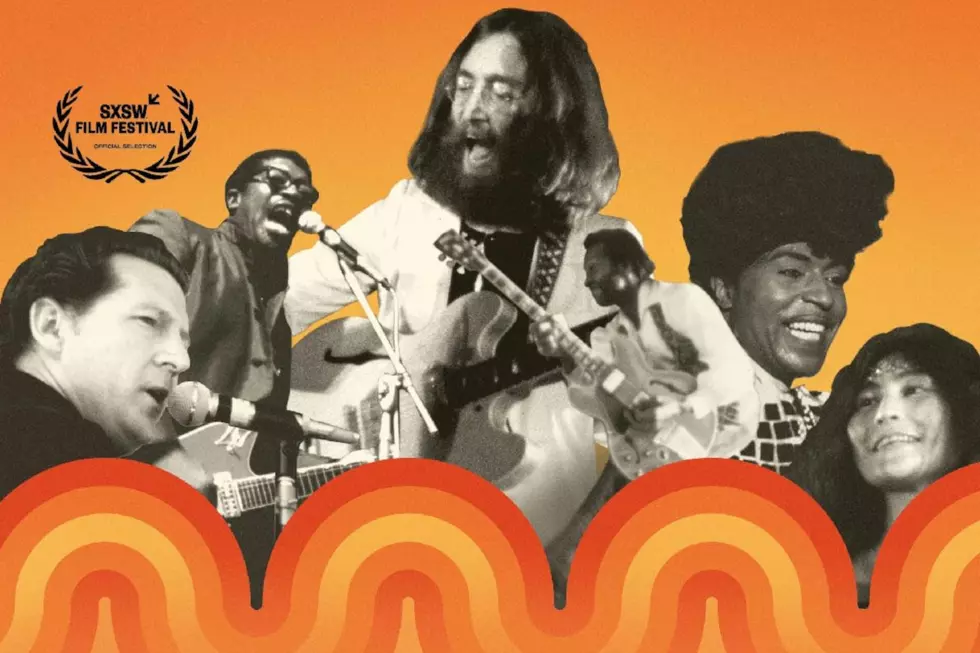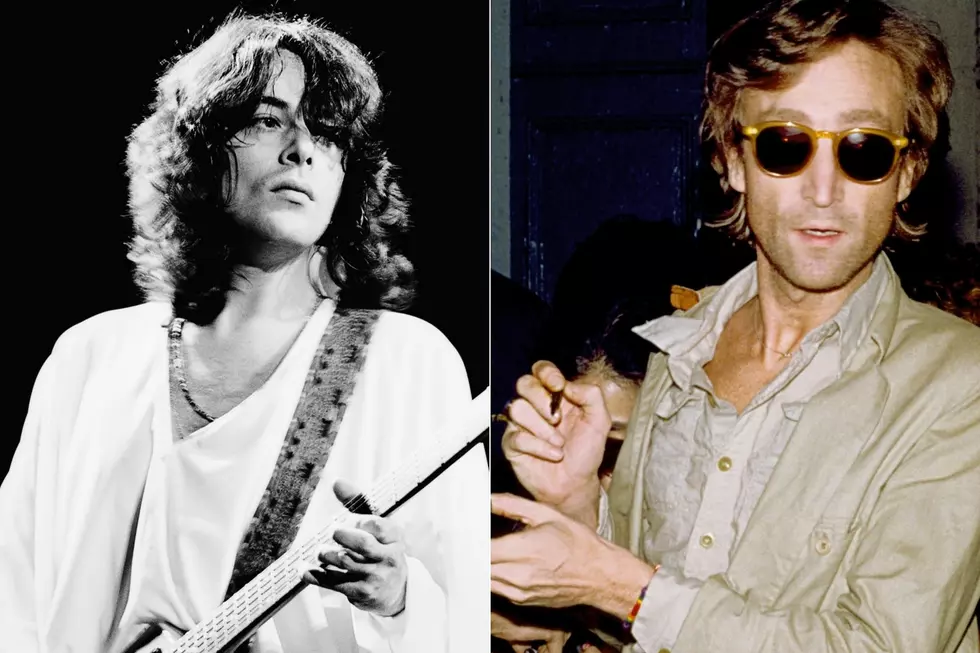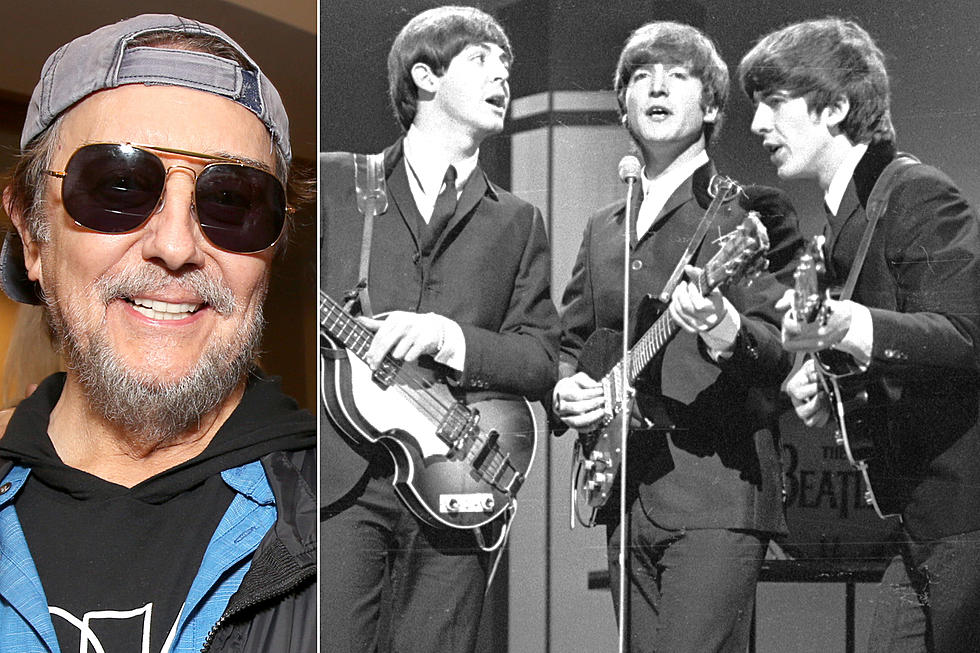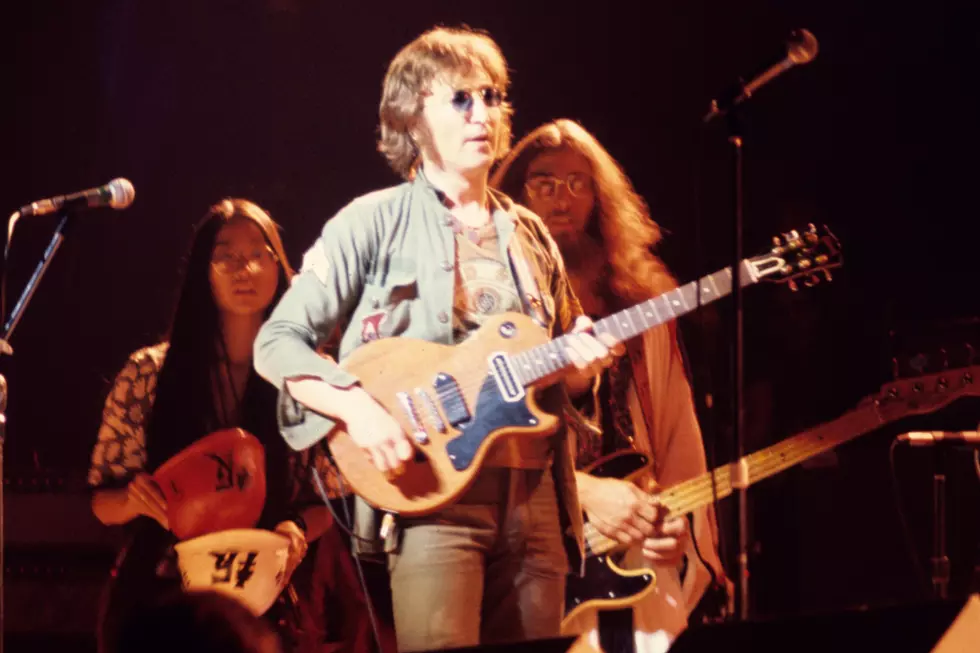
50 Years Ago: John Lennon Performs His Final Full-Length Concert
John Lennon's Aug. 30, 1972, headlining benefit performance at Madison Square Garden would ultimately turn out to be the final full-length concert of his life.
The show arrived amid a tumultuous time. Lennon had come under harsh scrutiny from President Richard Nixon due largely to his outspoken opposition to the Vietnam War, as well as his support for various liberal causes. Nixon believed the former Beatles legend was hurting American youth and decided to use a 1968 marijuana-related arrest in the U.K. as his excuse to have Lennon deported.
Adding to the stress, Lennon’s most recent album, Some Time in New York City, wasn’t matching the sales numbers he’d previously enjoyed with the Beatles or even his earlier solo efforts. Lead single “Woman is the N----- of the World” had caused a stir, and for the first time in his career, Lennon’s star seemed to have lost some of its shine.
Still, one thing that hadn’t changed was his social consciousness. So Lennon quickly agreed when reporter Geraldo Rivera reached out with the chance to support Willowbrook, a Staten Island facility for children with intellectual disabilities.
"Geraldo Rivera is the one who thought of it, who was really hot on this issue about the mentally handicapped, and he came all the way to San Francisco to meet us," Yoko Ono would later recall. "He convinced us to do this. Without him, it wouldn't have happened."
Dubbed One to One, the benefit featured headliner Lennon, supported by Ono and Elephant's Memory, on a bill with Stevie Wonder, Roberta Flack and Sha-Na-Na. Lennon was so committed that he bought nearly $60,000 worth of tickets to help guarantee its success. Not that he needed to: Tickets to One to One quickly sold out, leading Lennon and the rest of the artists to add a second, earlier show on the same day.
The matinee was rough, due in no small part to Lennon’s long absence from performing. His last time delivering a full-length concert was the Beatles' 1966 show at Candlestick Park in San Francisco. Lennon, Ono and Elephant's Memory had rehearsed together for three days before the early One to One, but there were still some kinks to be worked out. “Welcome to the rehearsal,” Lennon quipped to the matinee crowd.
Listen to John Lennon Perform 'Come Together' In Concert
The nighttime performance, by all accounts, was the stronger of the two. He opened the set with “Power to the People,” the rousing call-to-action originally released in 1971. From there, Lennon rolled through an array of material from his solo career. “New York City,” “It’s So Hard” and “Instant Karma” were among the set’s early highlights.
Ono also took the spotlight on a handful of tunes. A New York Times review argued that Ono’s “extraordinary vocal improvisations may be an acquired taste, but they open an area of sound for its own sake that widens the color spectrum for what could be an important new rock ensemble.”
Later in the evening, Lennon briefly dipped into his Beatles catalog, performing the classic hit “Come Together.” The night ended with an all-star rendition of “Give Peace a Chance,” as all of the concert’s previous performers joined Lennon on stage.
“That Madison Square Gardens gig was the best music I enjoyed playing since the Cavern or even Hamburg,” Lennon told NME in 1972. “It was just the same kinda feeling when the Beatles used to really get into it.”
Lennon never played another full-length concert, but the One to One shows weren't Lennon's final turns on stage. He famously made a guest appearance at Elton John's November 1974 concert at Madison Square Garden. His last public appearance followed in April 1975, during a multi-act celebration of music mogul Sir Lew Grade.
Recordings from the One to One shows wouldn't see the light of day until 1986, well after Lennon was assassinated outside his home in New York City. Live in New York City went gold, but was nevertheless criticized for its editing choices: For unknown reasons, many of the performances from the weaker, matinee performance were used.
Still, the LP and accompanying video footage offered the most complete on-stage experience Lennon fans would ever have.
The Best Song From Every John Lennon Album
See John Lennon in Rock’s Craziest Conspiracy Theories
More From Ultimate Classic Rock





